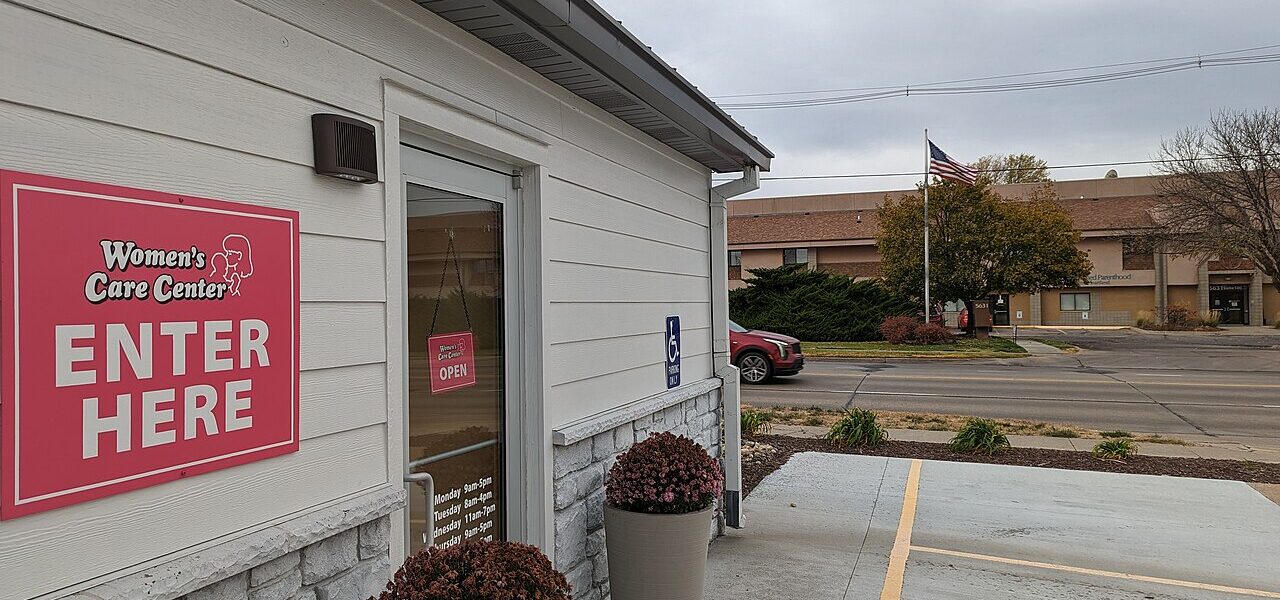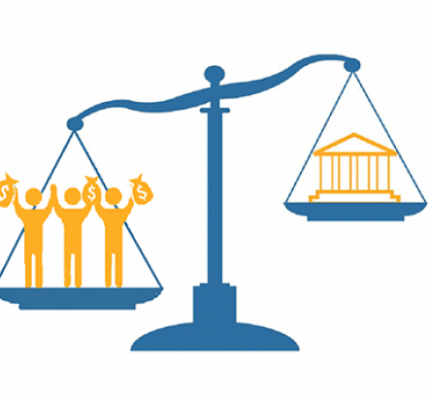How Crisis Pregnancy Centers Use Misinformation, Loopholes, and Taxpayer Dollars to Undermine Reproductive Rights
In early 2024, Willow walked into what she thought was a free women’s health clinic in Idaho. She left weeks later, emotionally drained and further along in her pregnancy than she’d planned—delayed just long enough that she nearly missed her chance to terminate it.
“They made me wait a week for the first pregnancy test,” she recalled. “Then another two weeks for an ultrasound. By then, I was too far along for most clinics. I was terrified.”
What Willow didn’t realize was that the center she visited—like more than 2,700 others across the United States—was part of a sprawling network of Crisis Pregnancy Centers (CPCs). These facilities position themselves as safe, nonjudgmental places for pregnant people seeking guidance. But behind the scenes, many operate with a singular mission: to dissuade women from having abortions, no matter the cost.
As state abortion bans sweep across the country and legal access erodes, these facilities are quietly growing more influential. They are propped up by taxpayer dollars, protected by legal loopholes, and operating largely without meaningful oversight.
A Parallel System of Care With a Hidden Agenda
Crisis Pregnancy Centers often present themselves as full-spectrum reproductive health clinics. Many offer free pregnancy tests, limited ultrasounds, and “options counseling.” Their marketing often emphasizes compassion, privacy, and medical professionalism. But most CPCs do not offer abortion services, birth control, or even referrals to legitimate providers. In fact, some actively steer people away from accessing any of those services at all.
According to an issue brief by the Center for Reproductive Rights, CPCs frequently use deceptive tactics designed to confuse clients and delay their decision-making process. These include:
- Making false claims that abortion causes infertility, breast cancer, or serious mental illness.
- Deliberately overestimating a person’s gestational age in order to push them past local legal abortion windows.
- Displaying emotionally charged visuals or showing ultrasounds without context, sometimes under the guise of “education.”
- Purchasing ads on Google using terms like “abortion clinic” to redirect searchers to CPC websites that do not actually provide abortion care.
- Dressing volunteers or staff in lab coats and decorating facilities to resemble medical offices, creating an illusion of clinical credibility.
“There’s no legal obligation for these facilities to provide accurate information,” said Dr. Linda Prine, a family medicine provider and founder of the Miscarriage and Abortion Hotline. “Their intake forms, counseling practices, everything—it’s all designed to steer people away from abortion, not care for them.”
Despite lacking medical licenses or oversight in many cases, CPCs often leave clients with the impression that they are receiving care from legitimate professionals. In reality, many staffers are volunteers with religious affiliations, not healthcare credentials.
The Data Mirage: “HIPAA-Compliant” in Name Only
Perhaps one of the most alarming and under-discussed practices of CPCs involves how they handle client data. On the surface, many centers present themselves as secure and compliant with federal health privacy laws. Their websites and intake forms often cite HIPAA—the Health Insurance Portability and Accountability Act—and promise confidentiality. But this is often a mirage.
In February 2025, the Electronic Frontier Foundation (EFF) sent letters to attorneys general in four states—Arkansas, Florida, Missouri, and Texas—urging them to investigate CPCs over misleading claims about data privacy and potential violations of consumer protection laws. EFF’s primary concern was that CPCs frequently assert HIPAA compliance even though they fall outside the legal definition of a “covered entity.”
HIPAA protections apply to licensed medical providers, insurance companies, and certain third-party vendors. Most CPCs—especially those run by churches or nonprofits—do not meet that threshold. Nonetheless, they often ask clients to share sensitive health information under the assumption that it is protected by law.
The Campaign for Accountability (CfA), a nonprofit watchdog group, has documented multiple cases where CPCs misrepresented their privacy practices. In one 2024 incident, the Unexpected Pregnancy Center in Louisiana, which is affiliated with Heartbeat International, claimed HIPAA compliance on its website and forms. Yet a video presentation published online by Heartbeat International accidentally leaked the names of at least 13 clients.
When CfA filed a formal complaint with the Department of Health and Human Services’ Office for Civil Rights, the office responded that it lacked jurisdiction. Because the center was not a HIPAA-covered entity, it could not be held accountable under federal health privacy laws.
“This is not about abortion,” the Campaign for Accountability explained. “It’s about consumers’ reasonable expectation that when a provider tells them their information is protected, it’s true.”
In reality, information collected by CPCs can be shared with partner organizations, stored without encryption, or used to target clients for follow-up—even after they have left the facility.
Targeting the Vulnerable
Rather than serving the general population, CPCs often seek out people in precarious situations. National networks like Care Net and Heartbeat International train affiliated centers to focus on “abortion-vulnerable” individuals—those who might be persuaded to carry a pregnancy to term if given emotional or financial support.
These vulnerable populations frequently include young people, people of color, undocumented immigrants, and low-income individuals. In many states, these are the same groups already suffering from unequal access to reproductive health services, maternal care, and basic healthcare.
One intake form obtained from Sage Women’s Center in Idaho offers a revealing look into the methods used to assess and manipulate clients. Visitors are asked to disclose their religious affiliation, financial situation, history of prior pregnancies, and intentions for the current pregnancy. There are even questions about whether the father knows about the pregnancy and what decision he would like the client to make.
Staff are directed to record subjective observations: Did the client cry? Smile? Avoid eye contact during an ultrasound? This information is then used to assign a score indicating the client’s “abortion vulnerability.”
“What clinic needs to track whether a patient smiled during an ultrasound?” asked Dr. Prine. “It’s weird. It’s not care—it’s coercion.”
Volunteers are also encouraged to share Bible verses, initiate spiritual discussions, and schedule multiple follow-up visits to keep clients engaged—and ideally, to delay any decision to seek an abortion.
Delays That Cost Time—and Options
One of the most harmful aspects of CPCs is how they intentionally delay care.
For people like Willow, these delays can be life-altering. While she had made the decision early on to terminate her pregnancy, she was caught in a slow, manipulative process that caused her to lose access to options.
“I knew I didn’t want to be a parent. I couldn’t afford it,” she said. “But they kept dragging things out. First a pregnancy test. Then a wait for an ultrasound. By the time I got real medical care, I was too far along for most places.”
Although Colorado does not impose a gestational limit on abortion, many clinics have their own policies about how far into pregnancy they are willing to perform the procedure. Willow was turned away from three different clinics before finding one that would take her.
According to the American College of Obstetricians and Gynecologists, such delays are not incidental. They are core to how CPCs operate.
When appointments are spaced out, test results are delayed, or ultrasounds are repeatedly rescheduled, clients lose precious time. In states with strict gestational bans, even a delay of a week or two can mean the difference between access and denial.
The emotional toll can also be severe. Being pressured to reconsider, shown graphic images, or repeatedly asked to explain one’s decision can compound stress, guilt, and confusion.
A Publicly Funded Parallel System
Despite their questionable practices, CPCs receive extensive public support. In 2022 alone, CPCs brought in $1.4 billion in revenue, according to the EFF, with a significant portion of that money coming from state and federal governments.
This funding often takes the form of grants, line items in state budgets, or contracts issued through health departments. In some states, CPCs even receive more public funding than actual reproductive health clinics.
In North Carolina, state Representative Julie von Haefen has spent years trying to understand how these funds are used. She visited a Care Net-affiliated center in her district and asked to see its intake documents—the same ones given to clients.
“They refused,” she said. “They wouldn’t even let me see the intake forms.”
Instead, she was handed a pamphlet containing misinformation, including debunked claims that abortion causes cancer and infertility.
“These centers take public money, but they won’t be transparent. That should concern everyone.”
Networks That Share More Than Values
The CPC infrastructure is not just a loose collection of clinics. It is a coordinated national system maintained by powerful umbrella organizations.
The three largest CPC networks—Heartbeat International, Care Net, and the National Institute of Family and Life Advocates—offer affiliate centers access to training, software, marketing tools, and legal support. In exchange, they often receive client data and performance metrics.
Heartbeat International openly touts its center management software, which it says collects “critical metrics” across the pregnancy help movement to provide “powerful, actionable insights.” However, the details of how this data is stored or shared remain unclear.
“Many of the crisis pregnancy centers are part of networks,” said Susannah Baruch, executive director of Harvard’s Petrie-Flom Center. “They’re sharing the information up to the networks, which are there to try to reduce the number of people accessing abortion. We don’t know exactly what they would do with the information.”
This ambiguity raises serious concerns. Without the legal protections afforded to medical clinics, CPCs can technically distribute client data to third parties, including churches, anti-abortion lobbying groups, and political organizations.
Some CPCs deny that they share personally identifiable information. But critics point out that without legal enforcement, these assurances mean little.
Calls for Oversight and Accountability
As CPCs expand their footprint and influence, advocacy groups are calling for meaningful oversight.
EFF has demanded investigations into CPCs in multiple states for consumer deception, especially related to privacy claims and misleading advertising. The Campaign for Accountability has filed similar complaints in Idaho, Louisiana, and beyond.
Thus far, few state attorneys general have taken action. In Idaho, Attorney General Raúl Labrador’s office acknowledged that the Consumer Protection Division was “looking into the matter,” but no concrete steps have been made public.
Meanwhile, some states are actively increasing funding for CPCs while slashing support for legitimate family planning services. This imbalance not only creates a two-tiered system but funnels vulnerable clients toward less regulated and ideologically driven care.
The Need for Transparency
Crisis Pregnancy Centers are not simply alternative resources for pregnant people. They are organizations with a specific ideological purpose, operating under misleading pretenses and shielded from many forms of accountability.
They market themselves as compassionate and neutral while withholding critical information, delaying access to time-sensitive care, and collecting sensitive data that may be shared without consent.
As more people face logistical and legal barriers to abortion, CPCs are becoming the only option for some. But their rise comes at a cost: ethical violations, privacy intrusions, and a growing national infrastructure designed to undermine reproductive rights in the name of compassion.
“If we don’t act now,” Willow said, “more people are going to get trapped like I did.”




